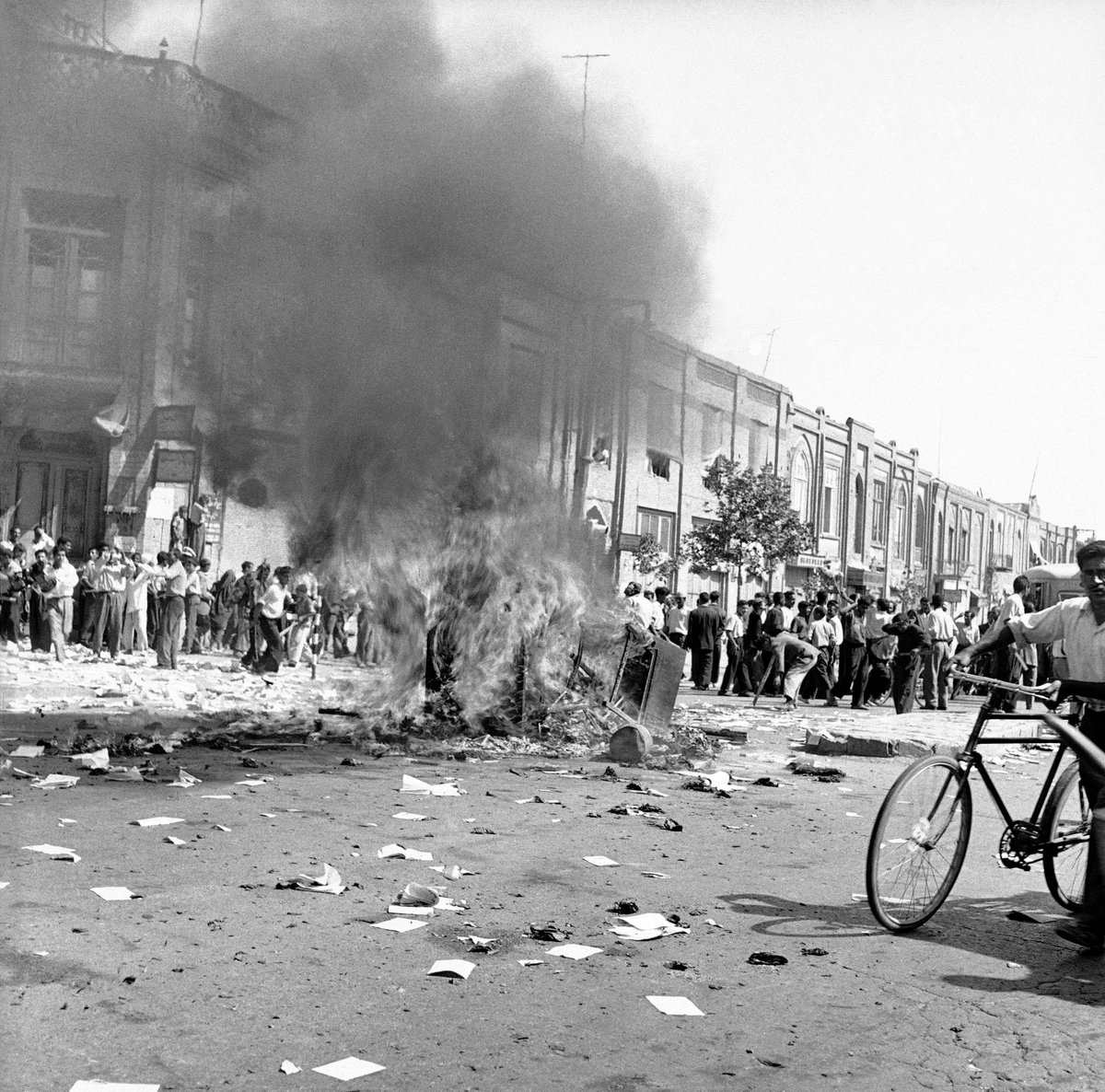I didn't want it to come to this, but you all have left me no choice: rumors regarding a 50yr US-Saudi agreement "expiring," triggering the end of dollar dominance, are total nonsense.
A thread:
A thread:

First: in the late 1960s, as a result of shifts in the int'l oil industry and improving negotiating position for major oil producers, states like Saudi started earning more per-barrel from their oil exports. The process accelerated in 1971 with the Tripoli/Tehran agreements. 

The end of Bretton-Woods in 1971, collapse of the fixed exchange rate system regulating currency exchange, and the creeping threat of inflation in the Western economies coincided with a transfer of wealth from consumers to producers. "Petrodollars" were born.
This posed a problem, for basically everyone. Consumers had to pay more for their energy; Western economies were suddenly sending more money to relatively poor, under-developed oil exporters; and the exporters had to figure how to spend their sudden windfall.
Some states, Iran and Iraq, plowed their money into economic development to satisfy their populations' demands for improved living standards; the rest they spent on arms.
Saudi Arabia, however, could not take this route, for a few reasons.
Saudi Arabia, however, could not take this route, for a few reasons.
First, in the early 1970s, KSA was still sparsely inhabited, with a small non-oil economy--too small to absorb more than a fraction of the wealth produced from oil exports. Compounding this problem was the volume of exports: Saudi was far and away the largest exporter.
Western officials and Saudi leaders were conscious of this problem, and the preferred solution (for basically everyone) was for Saudi to park their money in Western markets while spending whatever they could on productive enterprise (in many cases, hiring Western firms).
This made commercial and fiscal sense--Western markets, both the "Eurodollar" markets and the US itself were large enough to absorb the influx of new cash--but also made political and economic sense for KSA, which wanted econ development and closer relations with the West.
I should pause to say that everything so far is broadly consensus, there's a ton of historical literature on the process of "petrodollar recycling;" folks who want to know more can check out recent books from @vrsmcfarland and @David_M_Wight.




1973-1974, the price of oil quadruples, while a Saudi-led embargo of the US puts enormous pressure on the Nixon Admin to negotiate an end to the Arab-Israeli war. The economic fallout from the oil shock is top-of-mind for US officials, who conclude that a Saudi commitment...




...to investing the colossal sums of petrodollars it was going to earn in the US would avert financial crisis while also bonding the two states more closely together. The agreement that emerged was built on pre-existing trends. 

The agreement, strengthened through a bilateral commission, was designed to ensure Saudi did not face internal dislocations from its wealth (along the lines of what other states, including Iran, would later suffer), while mitigating the inflationary shock on the global economy.
But it was also meant to strengthen US-Saudi relations, which were to become much more important given Saudi's position astride the global oil market. 

Why dollars? Dollars were convertible and abundant. Most traded oil (still a relatively small amount at the time, as most oil moved through closed channels controlled by a few companies or through long-term contracts). The Saudis paid companies marketing the oil in dollars...
...and desired dollars since most of the capital goods they wanted were in the US and valued in dollars. Dollars made sense, relative to the alternatives.
In subsequent decades, dollarization of global traded oil (which exploded in terms of volume in the 1980s, as the oil market underwent a transformation) added additional stabilization to the US-Saudi pact from 1974. But the arrangement is still just that--an arrangement.
It doesn't carry the weight of a formal agreement or treaty. It was a convenient answer to a series of vexing questions, for both the US and Saudi, stemming from the oil shock and the earlier transformation in the global oil economy. That's it.
As is often the case with US foreign policy, the petrodollar agreement has usually been approached from a conspiratorial POV. But I challenge anyone to suggest a different approach to the problem facing the US, Saudi, and global economy in the mid-1970s.
Maybe Riyadh will choose to sell more oil in non-dollar currencies. Maybe they won't. The petrodollar market doesn't matter as much now as it did in 1974, which saw the largest non-violent transfer of wealth in human history. So even if this "50 year agreement" were abrogated...
...it's mostly out-lived its usefulness. The US and Saudi are close to agreeing on a historic security arrangement. The US produces and sells more oil than Saudi does, while Saudi mostly sells to Asian customers. There are other, more important elements in the relationship...
...than the supposed Saudi commitment to selling oil in dollars and parking the proceeds in Western bank accounts and securities. So the rumors kicked up about its supposed demise are both peddling nonsense and boosting a narrative that really doesn't matter that much.
End.
End.
• • •
Missing some Tweet in this thread? You can try to
force a refresh












